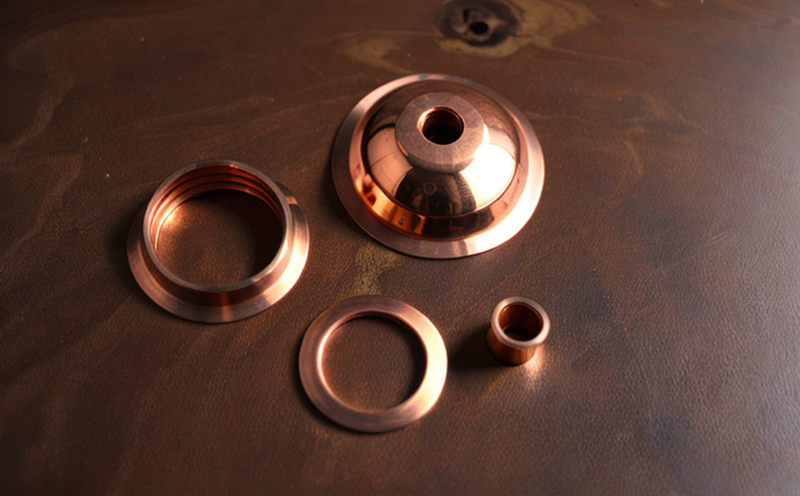MIL-STD-810 Immersion Testing of Aerospace Components
The MIL-STD-810 standard is a set of environmental engineering and test methods that provide testing, handling, and storage procedures for military equipment. Among the various tests outlined in this standard, immersion testing is crucial for aerospace components as it simulates the conditions under which these components might be exposed to water or other liquids during operational use.
In the aerospace industry, materials such as copper and brass are critical due to their excellent electrical conductivity and mechanical properties. These materials are commonly used in connectors, fasteners, and structural elements. To ensure that these components can withstand the harsh environmental conditions they might encounter, immersion testing is essential.
During this test, aerospace components are submerged in water or other appropriate liquids for a specified duration to evaluate their resistance to corrosion, degradation, and performance under wet conditions. This process helps identify potential weaknesses in design, manufacturing processes, or material selection before the component reaches the end user.
The testing procedure involves several key steps: specimen preparation, immersion time, temperature control, observation of physical changes, and evaluation based on predefined criteria. Specimens are typically cleaned and dried according to specific protocols outlined by MIL-STD-810 before being placed in the test medium. The duration and temperature conditions can vary depending on the specific requirements specified in the contract or design specifications.
After immersion, the specimens undergo a thorough inspection for any signs of corrosion, pitting, or other forms of degradation. Any changes observed are documented carefully, providing valuable insights into the material's performance under these conditions. This data can be used to refine future designs and manufacturing processes, ensuring compliance with stringent aerospace standards.
Applied Standards
| Standard | Description |
|---|---|
| MIL-STD-810G | The latest version of the Military Standard that outlines a comprehensive set of environmental engineering and test methods. |
| ASTM B659 | American Society for Testing and Materials standard defining procedures for corrosion testing in aqueous environments. |
Scope and Methodology
The scope of MIL-STD-810 immersion testing includes evaluating the performance of aerospace components in water-based environments. This test is particularly important for copper and brass materials, which are prone to corrosion if not properly treated or protected.
The methodology involves several critical steps: preparation of specimens, selection of appropriate liquids (such as water with added chemicals like sodium chloride), immersion time and temperature control, observation period, and evaluation criteria. Specimens must be cleaned meticulously before being submerged for the specified duration at controlled temperatures.
Once immersed, the components are closely monitored to observe any changes in appearance or function. The test results are then compared against established acceptance criteria to determine compliance with aerospace standards. This process ensures that only high-quality materials and products reach the market, safeguarding both performance and safety.
Industry Applications
- Connector integrity in harsh environments
- Mechanical fastener durability under water exposure
- Structural integrity of components during immersion
- Evaluation of material resistance to saltwater corrosion
- Detection of potential weaknesses before deployment
By conducting rigorous tests like MIL-STD-810 immersion testing, manufacturers can ensure that their products meet the highest standards required by the aerospace industry. This not only enhances product reliability but also reduces the risk of failures in critical systems.





